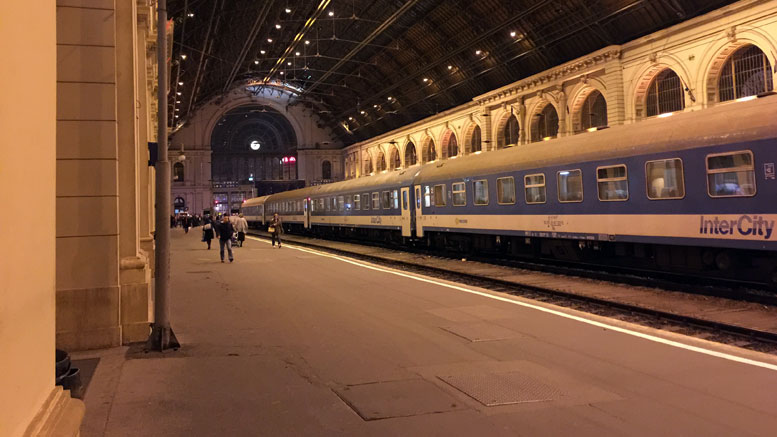This is the second of two parts by Pamela Bosch, founder of Highland Hemp House, Bellingham, Washington, USA, based on her annual hemp fact-finding trip to Europe late last year. (Part 1)
After Italy I had 10 days to make it to Poland. I cannot do justice to relaying the experience I had in my hemp related travels, but here are some vignettes to set the mood: A day with young lovers from Slovenia in Venice; Gustav Klimt in a Vienna museum; A luxurious Turkish bath and Natural History Museum in Budapest; A late night conversation with a Polish man about politics and economics in train car that slept 4; Taking the wrong train due to language failure in areas beyond tourism—and liking it. But I must stay focused on why I went to Europe.
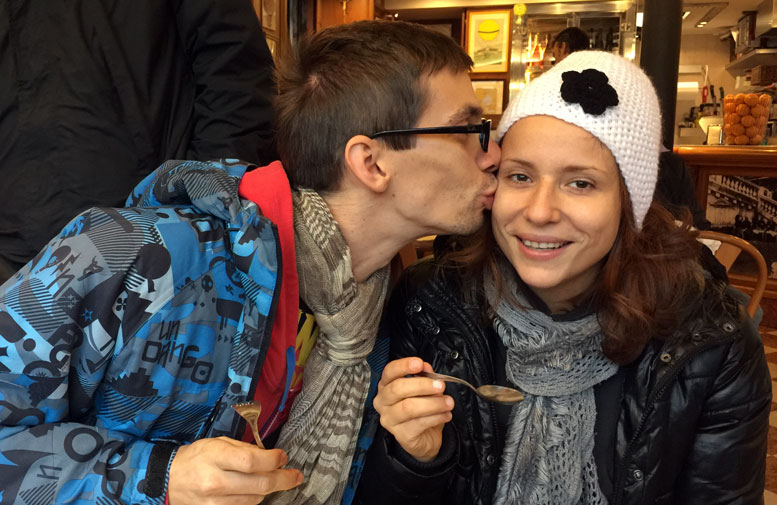
As cannabis enthusiasts well know, this is a plant that inspires. General knowledge equates this inspiration with the experience of ingesting it, but there is growing awareness that the tangible, material parts of the plant are every bit as “mind blowing.” The broader value of Cannabis is in its potential for healing the material world that modern industrialism has polluted. Capturing carbon, cleaning soil, producing regenerative fuel and building materials, body friendly medicine — these are not drug induced delusions, but real promises.
There should be a law
Unfortunately, those who are working hard to deliver these gifts to the ailing world are battling irrational prohibitions. Propaganda and outdated laws skirmish against the plant’s economic potential, and its promise to help heal the environment. Meanwhile the cannabis plant is held captive.The struggle is not about any inherent danger to the public, but about who is entitled to own the fruits and the spoils. There should be a law against politicizing nature!
That was only one of the issues we took on during Hemp2020, a gathering of 30 or so hemp experts, entrepreneurs and renegades representing 11 countries. We met at HempToday Center, deep in the heart of Poland, headquarters of HempToday, and where Kehrt Reyher and his wife Marzenna are rescuing an 18th century estate and promoting hemp for local economic development.
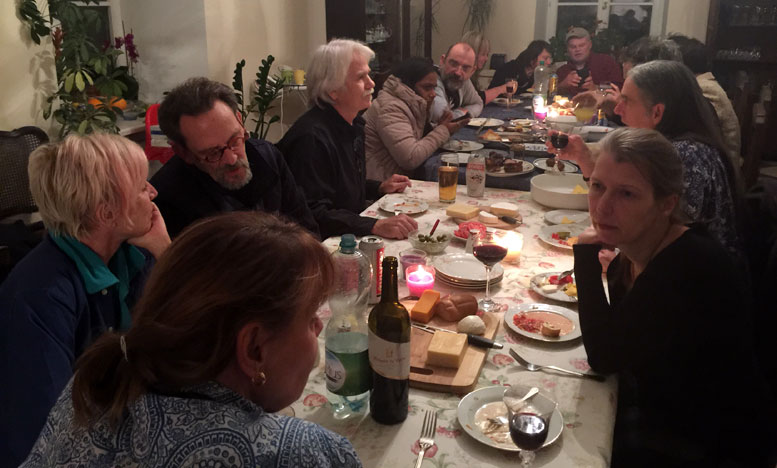
Front row seat
Beyond the seminar, the schedule gave us ample down time to engage with each other, to learn, to question, to share our experiences – all while being attended to like family. To be able to listen in on conversations between Jace Callaway and Anita Hemmila, and Richard Rose of the Medicinal Hemp Association on the merits and pitfalls of certified seed requirements was having a front row seat to leading edge policy discussion. But also to the brilliance, bravery, and sheer audacity of these pioneers.
It was an honor to sit down with Nivedita Bansal and Dhiraj Shah to witness their passion and brilliance applied to fighting poverty in Nepal, where they’re using feral hemp as the material basis for economic development in areas where people are too poor to participate in the monetary system.
I met German and Polish entrepreneurs, farmers and engineers – and squealed over two German-engineered harvesters that were presented – one for industrial scale farming, and one for smaller farms. We talked about everything from farming to building to healthy living and… politics.
The Czech hemp dynamo
Like many Americans, I know shamefully little about the former Communist Bloc. However, more than any other stop on my European tour – as amazing as it all was – was my visit at Hempoint with Hana Gabrielová in the Czech Republic. Following Hana around for a few days, I quickly realized that she is always working, always educating and, what makes it magical, always sharing. I could say that she is driven but, from closer observation, I’d say that she is propelled by a different cultural and personal perspective than Americans generally associate with entrepreneurs. I saw a deep identification with her work at Sasov Bio Farm, a cooperative where she grows hemp organically. She cares about the farm’s owner, the pigs, the people who eat the organic food that the farm provides to a local restaurant, the farmhands who stay in the yurt she erected on site, her village. In my three days of trying to keep up with Hanka the farmer, seed breeder, entrepreneur, business owner – student of agronomy, student of medicine, philosophy, health, and well-being, I developed an abiding respect for the way she is living out her vision.
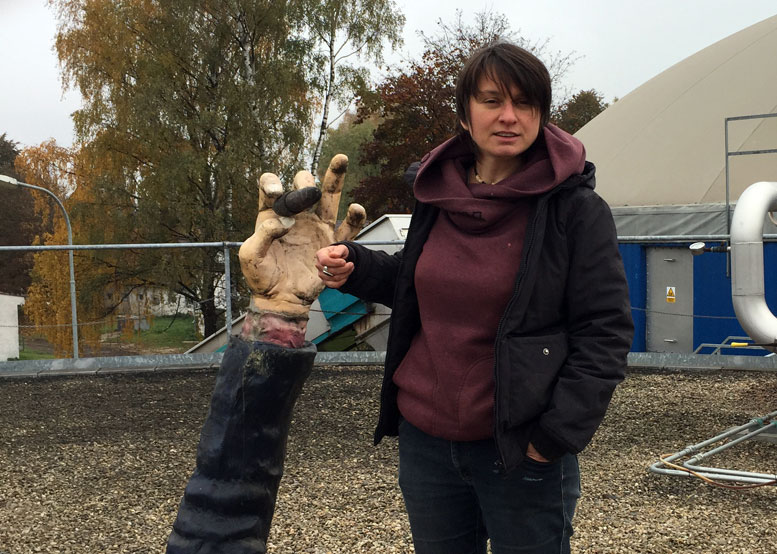
While it was clear that I was witnessing a human dynamo, I eventually also realized I was in the middle of a true farm of the future – Sasov Bio Farm.
The prototype bio farm
The main economic activity of the farm is to produce organic and humanely raised hogs. It is privately owned, but in many ways has well integrated systems that represent collective interests. There is an educational component, a local food component, and an on-site bio-fuel generator that uses manure to heat the buildings and dry the hemp seed. It occurred to me that this scale of organic farm is what healthy agriculture should look like.
We think of Communism as a failed experiment, but I think we should also think of giant corporate agribusiness as a failed experiment. In Czech Republic, where community, not hierarchies of entitlement, works at creating quality of life, the benefits are more equitably shared. We would do well to be more informed of these places where different histories have yielded possibilities for better living.
Catching up with Albert
My annual hemp fact-finding trip to Europe is never complete if I don’t visit Albert Dun, to soak up some Dutch inspiration at Dun Agro in Oude Pekela. Albert always takes time out of his busy schedule to show me the newest upgrades in his state of the art hemp processing operation in the northern Holland. This factory, to me, is the ideal model of a hemp processor. Dun Agro uses every part of the plant, producing everything from fuel pellets to fibres for the auto industry to construction and health drinks – efficiently and without all the dust. If every state in the U.S. had at least one of these hemp-based agro-complexes, we’d be well on our way to environmental recovery.
Albert is always coming up with new products, new processes, machinery upgrades; he is a pioneer of hemp growing and processing in Europe whose contribution is vastly understated in my opinion.
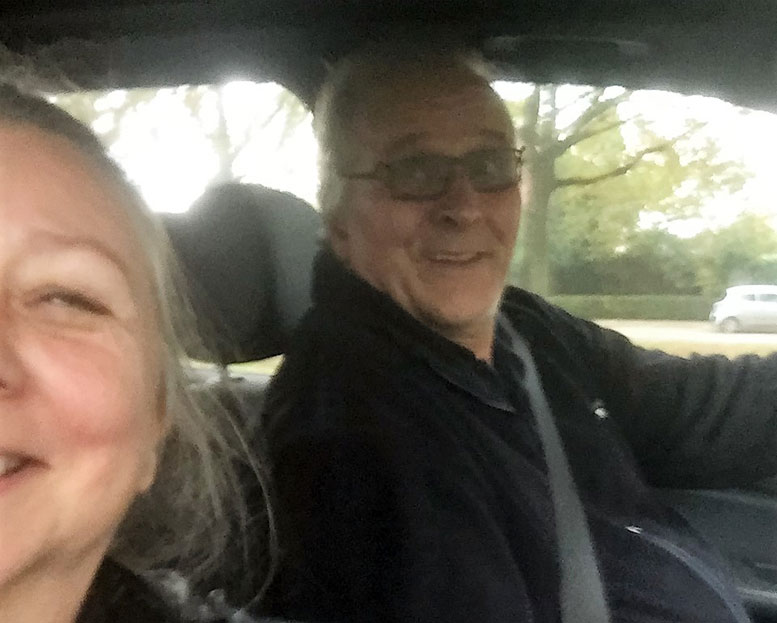
Two cents more
Finally, what was my contribution to the gatherings I attended (in Wales, Italy, and Poland)? I would have liked to have shared the details of my house being built, stories of breaking down barriers to making living spaces with these regenerative materials, news of laws based in fear and prohibition being replaced with those that support innovation and health.
But I couldn’t. We, in Washington State, are not there yet.
So what I shared was a model of human behavior. As I grapple with trying to understand why there are so many obstacles in the way of simply trying to build healthy structures, I have to first ask how we deal with the edifices we have constructed that block the way. My inspiration comes from a small Maori tribe that was so successful in building schools where they had never been that systems theorists came to study their methods. In short, their efforts were guided by a common goal and following the model of a healthy tree growing in the rainforest. Their motto translates roughly as “Growing from within ever upward towards well-being.” How simple. If we could clear away the complex, obfuscating, narrow interests that stand in the way of what we are naturally inclined to want to share, so that we could strive and be healthy, we would, as a consequence clean up a lot of our self-made mess.

